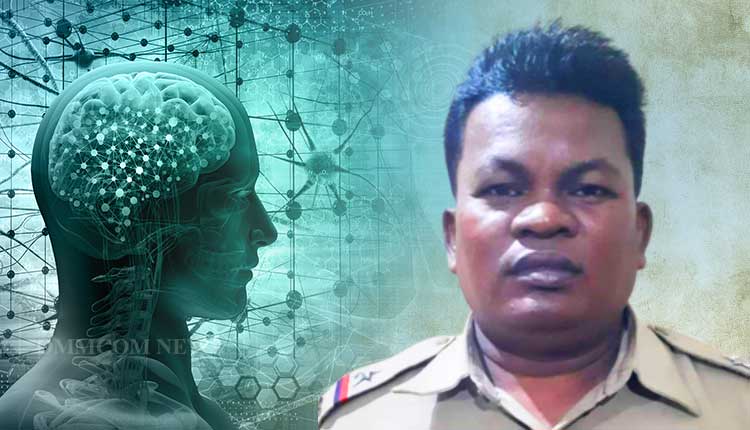Bhubaneswar: ASI Gopal Das, who opened fire at Odisha Health Minister Naba Kishore Das at Brajarajnagar in Jharsuguda on Sunday resulting in the latter’s death in a city hospital, is said to be a bipolar disorder patient.
The doctor who was treating Das said the ASI was suffering from a bipolar affective disorder or maniac depression eight to 10 years back. However, Das reportedly recovered after a long treatment. The doctor added that the disease can relapse if the patient discontinues medication, which could have been possible in the case of the Gandhi Chowk ASI.
As the doctor’s statement generated enough curiosity and people are wondering whether Das’ medical condition had led him to open fire on the minister. Before one comes to any conclusion, it is important to have a clear understanding of bipolar disorder, its signs, and symptoms, diagnosis and treatment.
BIPOLAR DISORDER
Earlier known as manic-depressive illness, bipolar disorder is a mental illness that results in unusual shifts in mood, energy, activity levels, concentration, and the ability to carry out day-to-day tasks.
In fact, there are three types of bipolar disorder and all three types involve clear changes in mood, energy, and activity levels. These moods range from periods of extremely “up,” elated, irritable, or energised behaviour (manic episodes) to very “down,” sad, indifferent, or hopeless periods (depressive episodes).
SIGNS AND SYMPTOMS
People with bipolar disorder experience periods of unusually intense emotion, changes in sleep patterns and activity levels, and uncharacteristic behaviors—often without recognising their likely harmful or undesirable effects. These distinct periods are called “mood episodes.” Mood episodes are very different from the moods and behaviors that are typical for the person. During an episode, the symptoms last every day for most of the day. Episodes may also last for longer periods, such as several days or weeks.
Sometimes people experience both manic and depressive symptoms in the same episode, and this is called an episode with mixed features. People experiencing an episode with mixed features may feel very sad, empty, or hopeless while at the same time feeling extremely energised.
DIAGNOSIS
Proper diagnosis and treatment can help people with bipolar disorder lead healthy and active lives. Talking with a doctor or other licensed healthcare provider is the first step. The health care provider can complete a physical exam and order necessary medical tests to rule out other conditions. The health care provider may then conduct a mental health evaluation or provide a referral to a trained mental health care provider, such as a psychiatrist, psychologist, or clinical social worker who has experience in diagnosing and treating bipolar disorder.
Other Conditions
Many people with bipolar disorder also have other mental disorders or conditions such as anxiety disorders, attention-deficit/hyperactivity disorder (ADHD), misuse of drugs or alcohol, or eating disorders. Sometimes people who have severe manic or depressive episodes also have symptoms of psychosis, such as hallucinations or delusions. The psychotic symptoms tend to match the person’s extreme mood.
Risk Factors
Researchers are studying the possible causes of bipolar disorder. Most agree that there is no single cause and it is likely that many factors contribute to a person’s chance of having the illness.
Brain Structure and Functioning: Some studies indicate that the brains of people with bipolar disorder may differ from the brains of people who do not have bipolar disorder or any other mental disorder. Learning more about these differences may help scientists understand bipolar disorder and determine which treatments will work best.
Treatments and Therapies
Treatment can help many people, including those with the most severe forms of bipolar disorder. An effective treatment plan usually includes a combination of medication and psychotherapy, also called talk therapy.
Bipolar disorder is a lifelong illness. Episodes of mania and depression typically come back over time. Between episodes, many people with bipolar disorder are free of mood changes, but some people may have lingering symptoms. Long-term, continuous treatment can help people manage these symptoms.
All said and done, all the while ASI Gopal Das was on duty, there has been no complaint against him. There was also no mention of his mental ailment. Some even claim that his service record was ‘good’. So, is the cop really a patient of this mental ailment?


















